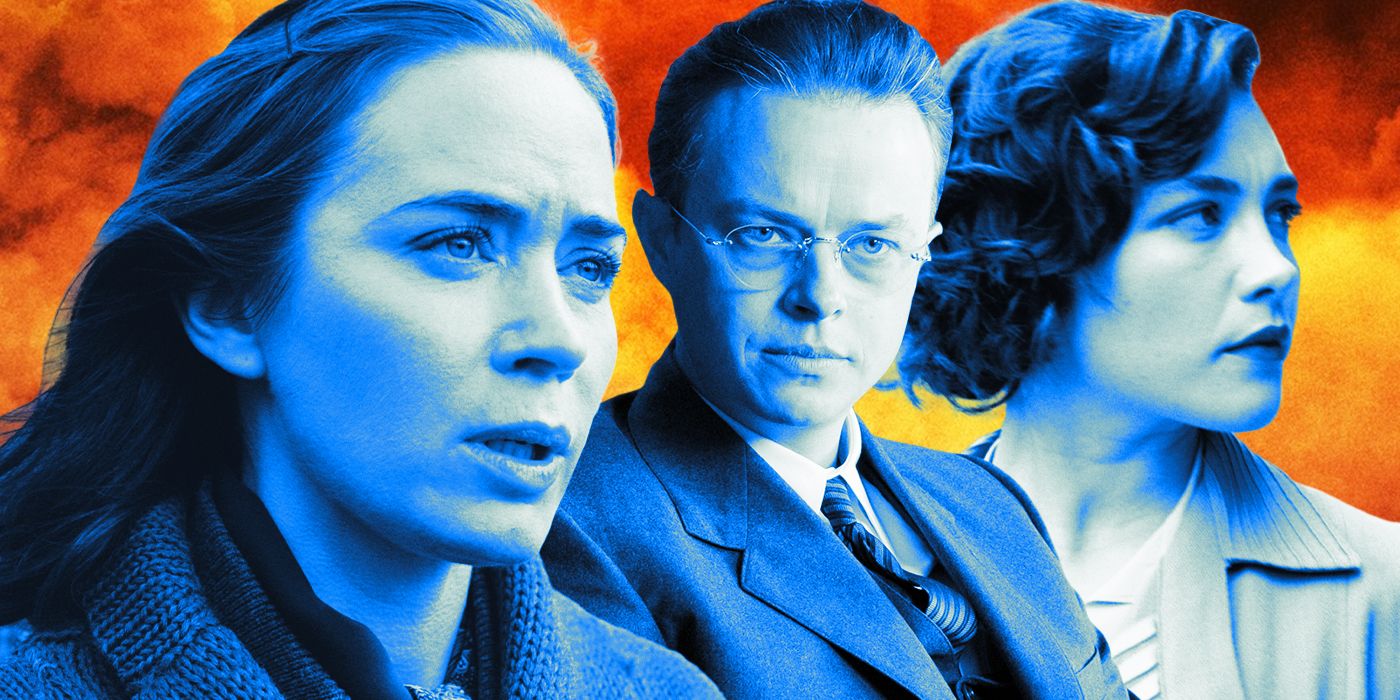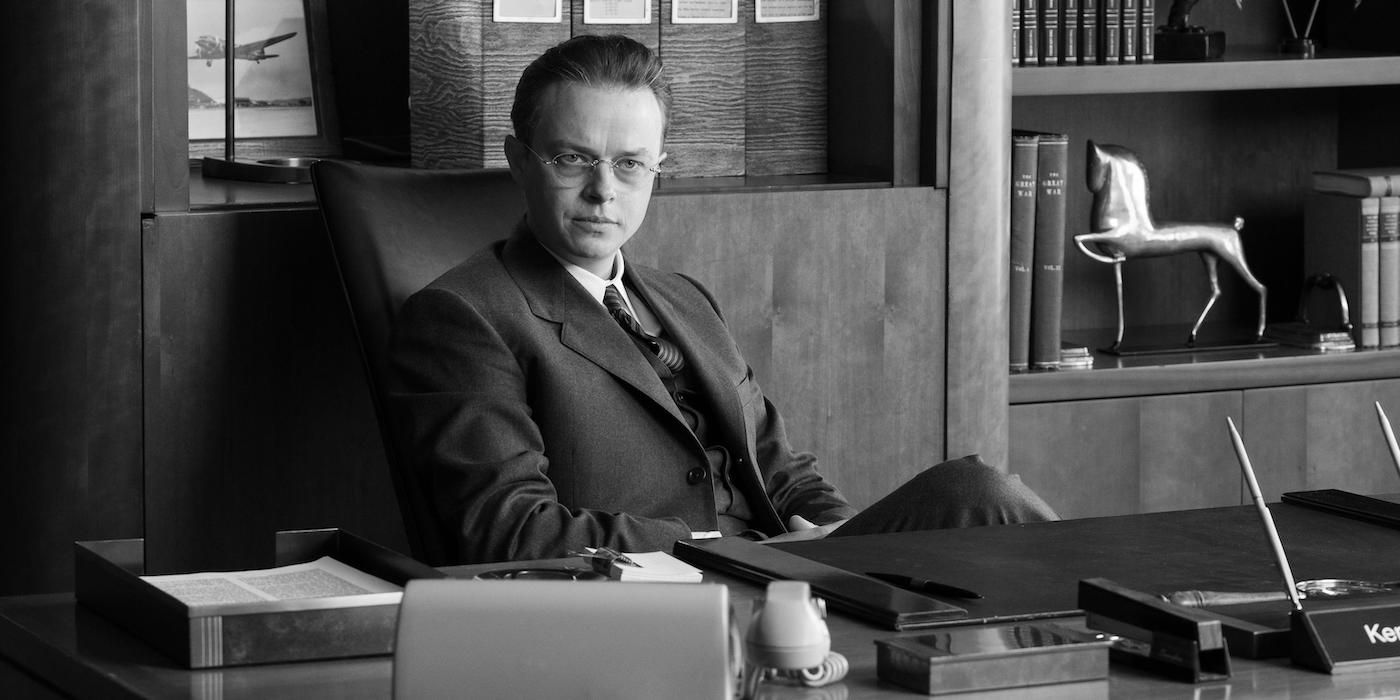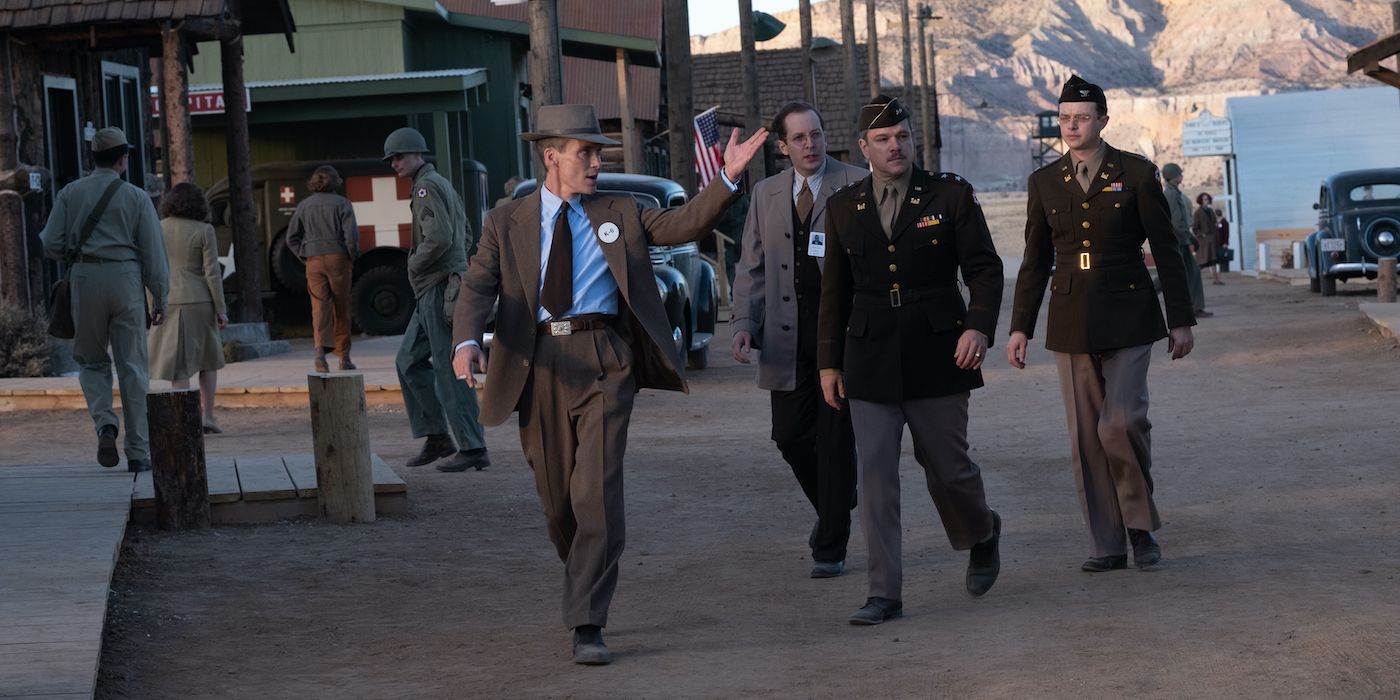The Big Picture
- Oppenheimer is an exhilarating cinematic showcase with a dense cast and sturdy character actors.
- Dane DeHaan's performance as Major General Kenneth Nichols conveys a quiet menace in a brief amount of screen time.
- The film explores the collision of groundbreaking science with the military-industrial complex, demonstrating Oppenheimer's helplessness.
Along with its spellbinding portrayal of a morally complex American figure and harrowing depiction of the meticulous creation of nuclear bombs, Oppenheimer is an exhilarating cinematic showcase that audiences have not experienced in years. The new film by Christopher Nolan is being celebrated for its dense cast of movie stars and sturdy character actors. There is plenty of justified acclaim for the likes of Cillian Murphy as the titular role, Emily Blunt as Kitty Oppenheimer, Robert Downey Jr. as Lewis Strauss, and even Jason Clarke as Roger Robb, but a cast this expansive and eclectic is prone to overshadow dynamic supporting performances, such as the brilliant performance by Dane DeHaan.
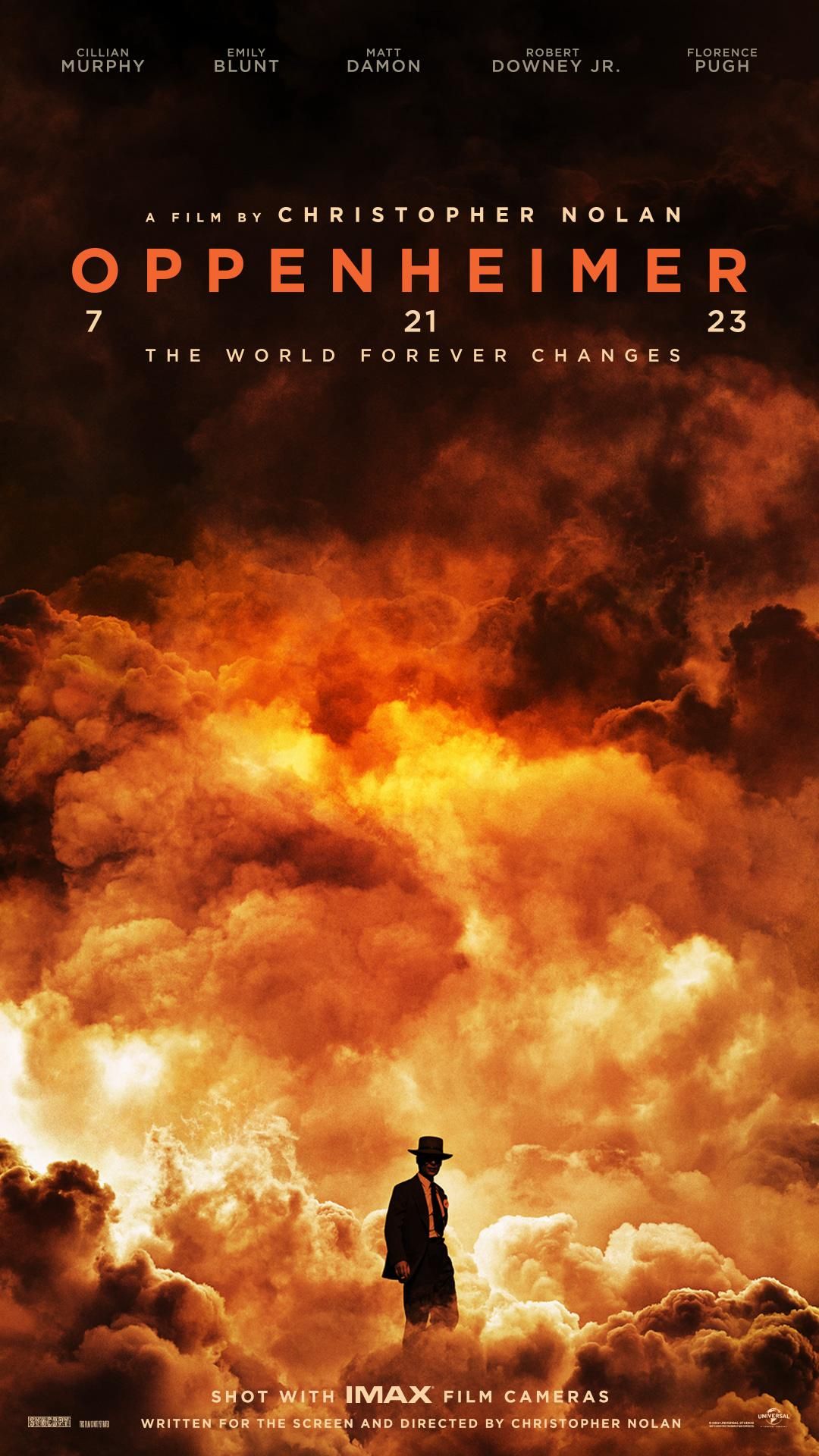
Oppenheimer
The story of American scientist, J. Robert Oppenheimer, and his role in the development of the atomic bomb.
- Release Date
- July 21, 2023
- Director
- Christopher Nolan
- Cast
- Cillian Murphy , Matt Damon , Robert Downey Jr. , Emily Blunt , Alden Ehrenreich , Scott Grimes , Jason Clarke , Tony Goldwyn
- Runtime
- 180 minutes
Dane DeHaan Is Part of a Hugely Talented Cast in 'Oppenheimer'
As news hit the public about the film's production, many were transfixed by the deep bench of its supporting cast. The extensive cast is a testament to Nolan's refraining from writing composite characters. It wasn't about who was starring in Oppenheimer, but who wasn't. Anticipation for Murphy receiving the promotion to leading status in a Nolan film and Downey finally emerging out of the post-Tony Stark shadow was paramount. He granted actors like Josh Hartnett and Alden Ehrenreich a revival after years of mainstream dormancy. Kids of the 2000s were baffled, but intrigued by the casting of Josh Peck and Devon Bostick in this austere historical biopic. On top of all this, Oppenheimer will also remind everyone why Dane DeHaan was one of the hottest assets in Hollywood not so long ago.
DeHaan, most known for his entrancing leading role in the Gore Verbinski film, A Cure for Wellness, Josh Trank's found footage superhero thriller Chronicle, and a handful of indie productions, had the makings of an off-kilter but captivating movie star. His appearances in films such as The Place Beyond the Pines, Lincoln, and Lawless equally shaped DeHaan as a reliable character actor. With his piercing blue eyes and gaze of inscrutability, the actor could undermine his boyish good looks with an internal sinister quality. A big break for DeHaan was unfortunately compromised by the unfavorable reception to Amazing Spider-Man 2, where he played Harry Osborn. The box-office bomb that was Luc Besson's Valerian and the City of a Thousand Planets in 2017 certainly didn't help matters either.
His quick rise to fame in the 2010s appeared to have completely dissipated until he received the call from the master director of populist sentiments with ostentatious thematic structures, Christopher Nolan. Along with starring in Nolan's critically acclaimed blockbuster, DeHaan appeared in Dumb Money, the docu-dramedy about the Gamestop stock phenomenon of 2021, where he played a Gamestop manager. Since he is wearing a mask throughout most of his screen time, viewers may have been oblivious to his appearance in the film.
Who Does Dane DeHaan Play in 'Oppenheimer'?
In the new film about J. Robert Oppenheimer and his coordination of the creation of the atomic bomb under the Manhattan Project during World War II, DeHaan plays Major General Kenneth Nichols. He worked as a civil engineer on the Manhattan Project and subsequently joined the Atomic Energy Commission following the war as a military liaison. In 1953, Nichols was elevated to the general manager of the AEC, which was led by Lewis Strauss, who also spearheaded an investigation into Oppenheimer's loyalty to the United States as a result of his past ties to the Communist Party.
Like many of the roles played by recognizable faces, including Oscar-winning actors such as Casey Affleck, Gary Oldman, and Rami Malek, DeHaan doesn't have that much screen time. However, as is the case with the rest of the steep cast, it is not about what DeHaan brings to the plot but rather the presence he conveys. Captured in exquisite black-and-white photography, his reserved menace is exploited throughout the film. From his first appearance, he is strikingly unmistakable with the glasses, slicked-back hair, and military officer uniform.
Oppenheimer is filled with countless mesmerizing shots under the eye of Nolan's cinematographer, Hoyte van Hoytema. In the same wavelength of under-the-radar magnitude, a scene involving a meeting between Oppenheimer, Strauss, and other AEC officials features a quick and subtle shot of a floral arrangement being moved aside, which reveals Nichols sitting in a seat previously blocked by the object. He is seen glaring into the soul of Oppenheimer, as the film has established to be following from the physicist's perspective. The reveal has the suddenness of a jump scare, and with this seemingly innocuous shot, Nolan shows that a minor character with nefarious intentions for our protagonist is lingering, waiting for his moment.
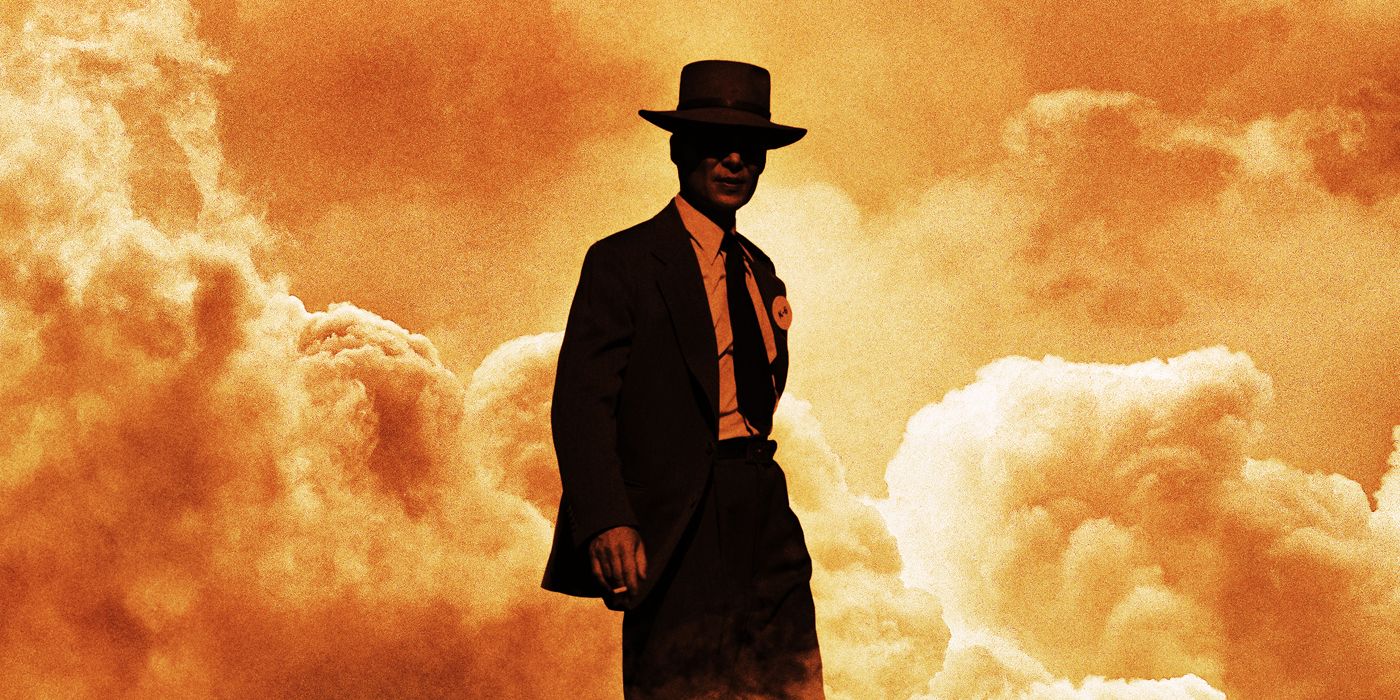
'Oppenheimer' Review: Christopher Nolan Delivers His Most Colossal and Mature Film Yet
Cillian Murphy is remarkable in a film that feels like what Nolan's entire career has been building towards.In the film's somewhat divisive third act, which intercuts between Oppenheimer's security hearing, a more-or-less character deconstruction covertly ordered by Strauss, and the confirmation hearing of Strauss' appointment as Secretary of Commerce by President Dwight D. Eisenhower, Nichols plays a subdued, yet crucial role. Strauss, who resents Oppenheimer for dismissing his concerns regarding the Soviet Union's progress in manufacturing atomic weapons, digs up the physicist's alleged ties to communism, notably surrounding his romantic relationship with Jean Tatlock (Florence Pugh), to effectively deny his influence in bureaucracy.
While in Los Alamos, New Mexico, the location of the Manhattan Project, Oppenheimer wanted to hear the status of his government clearance, and he asked Nichols, who was in charge of security parameters of the site. In choice words, he informs the soon-to-be father of the atomic bomb that he is overstepping his boundaries with this inquiry. The U.S. military-industrial complex, and by proxy, him, ultimately determines the fate of Oppenheimer and the entire project. The doctor triggers suspicion among his military superiors when a colleague of his is believed to have leaked intel to the Soviets regarding the Manhattan Project. At this moment, Nichols operates as a sobering reminder of Oppenheimer's obligation to serve under a master in the U.S. government. His virtuosic mind for quantum theory does not run the show here.
Dane DeHaan Conveys a Quiet Menace in a Brief Amount of Screen Time
In the timeline presenting the legal face-off between Oppenheimer and Strauss, Nichols enlightens the latter on the former's questionable background. Taking place in the early 1950s, when the second Red Scare led by infamous Wisconsin senator Joseph McCarthy was rampant in the political climate, Nichols is dauntingly representative of the paranoia at the heart of the bureaucratic system, as he feeds Strauss with the indictable information of Oppenheimer's loose communist ties. DeHaan conveys a particular brand of government sleaze in his brief performance — a deplorable superior officer who uses power to maintain control at all costs. He precisely embodies the government's lack of integrity depicted in the film, the kind that expresses no remorse for deploying weapons of mass destruction, but aggressively upholds a moral panic over political alignment.
DeHaan's performance crystallizes an important overarching theme of the film. The collision of idealistic groundbreaking science with the military-industrial complex amounts to Robert Oppenheimer being a helpless figure, contrary to Nolan's claim that he is the most important individual in the history of civilization. The power and influence that figures like Nichols possess is a rude awakening for hopeful pioneers like Oppenheimer, who is immensely conflicted with his ego and the monstrosity that he created, and Strauss, who fancies himself more as an advocate for science rather than an empty suit bureaucrat. Both of them are expendable in the eyes of the suppressive system carried out by Nichols.
Despite his prowess and inclination towards spectacle-driven action and science fiction, Christopher Nolan allows Oppenheimer to excel as a chamber drama featuring dynamic performers talking in legal hearings. The film is the closest instance of Nolan directing an Aaron Sorkin script (many have cited The Social Network as a fitting companion piece to this film). Banding together this plethora of compelling screen presences to discuss nuclear physics and yell in suits over eyewitness testimony is an ingenious way of exploiting their respective untapped abilities. It is refreshing to see this volume of familiar and respected faces on screen, even in a limited amount of screen time, such as Dane DeHaan, who brilliantly portrays a general conveying the overbearing power of the military-industrial complex, sometimes with just a glare.
Oppenheimer is available to stream on Peacock in the U.S.

